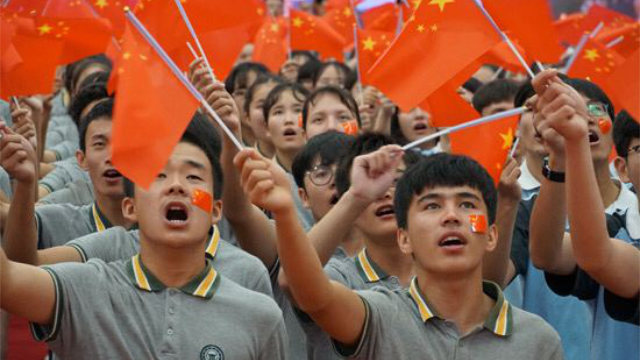Muslim students who attend universities in inland China are continuously monitored, barred from exhibiting ethnic and religious characteristics.
by Deng Jie

Numerous Muslim students from the Xinjiang Uyghur Autonomous Region go to study in inland China’s schools and universities each year. Some chose to do it themselves, while others are selected within state-sponsored programs. The government either covers their tuition and other expenses or gives preferential treatment during the admission process. Presented as an aid to “backward minorities,” the support to Xinjiang youth, in reality, is part of the regime’s plan to sinicize them.
A secondary school teacher from the southeastern province of Fujian told Bitter Winter that Uyghur, Kazakh, and Hui minority children attend the class for Xinjiang students she is in charge of. The teacher and her colleagues are not only entrusted with the children’s education but must also control and supervise their daily lives. She explained that while students are in class, teachers inspect their dormitory rooms to check if they have faith-related items. Such inspections are also conducted at night; therefore, children cannot lock their rooms.
“We must also check if they don’t pray or perform other religious ceremonies,” the teacher added. “Authorities also monitor their cellphones closely. The State Security Bureau investigated an Uyghur student for watching a short anti-government video online.”
A secondary school teacher from the eastern province of Shandong confirmed that students in her “Xinjiang class” were also strictly controlled. “They can’t perform any religious ceremonies, such as praying before a meal, in any school,” the teacher said.
Universities also enforce numerous measures to make sure that Muslim students stay away from religion.
The South China Normal University’s guidelines for scholarships and grants for minority students from Xinjiang in the 2017–2018 school year explicitly stipulate that applications are not accepted from students “who attend or privately conduct preaching, worshipping, fasting, and other religious activities, or who wear religious clothes or headscarves.”
Other educational institutions apply similar restrictions, following the Measures for Managing Grants for Minority Ethnic Needy Students from Xinjiang in Colleges and Universities in Inland China. The document, issued by the Education Department of Xinjiang Uyghur Autonomous Region in 2014, instructs that students who “attend religious activities or wear religious clothes” are not qualified to apply for grants. They must also “love the country and support the Party’s leadership.”
An Uyghur student at a university in the northeastern province of Heilongjiang realized that she was monitored during her second year of school.
“My teacher would take photos of me in my dormitory room or ask me to send him photos of myself, proving that I am at the dormitory,” the young woman said. She recalled that her teacher called her once while she was walking in the city, telling her to return to the dormitory immediately.
“Ahead of each festival or holiday, Uyghur students receive a notice from their teachers, banning them from leaving the city,” the student continued. “We must return tickets if we have already bought them.
The student once read aloud a phrase in Arabic that she noticed on a photo shown by an exchange student. She immediately realized that she had made a mistake and asked her classmates not to tell anyone that she knew the language, coming up with some vague reasoning. She also didn’t tell them that she had learned Arabic because she hails from a practicing Muslim family.
A university instructor from Fujian Province revealed that the teaching staff must monitor every Uyghur student’s daily life. They are instructed to determine if anyone in their families is religious, what they do after classes, do they bypass the Great Firewall to browse foreign information sites or send messages, and form private groups with other Uyghur students. Their attitude toward the government must also be assessed. Such investigations should be covert so that the students would not realize they are being watched. Teachers are also summoned by state institutions in charge of public security and education for a face-to-face discussion on various aspects of Uyghur students’ lives.
“It’s very challenging to collect so much personal information without being noticed,” the teacher said helplessly.
Source: Bitter Winter












